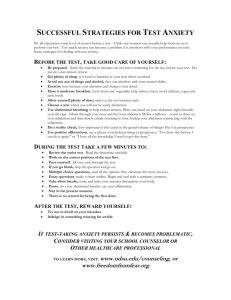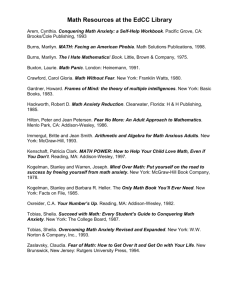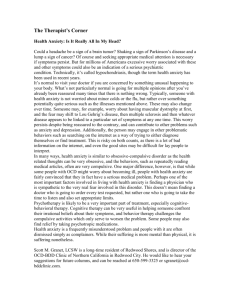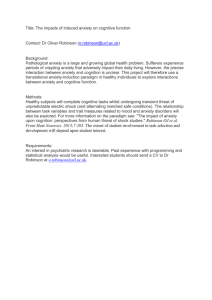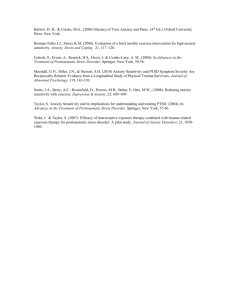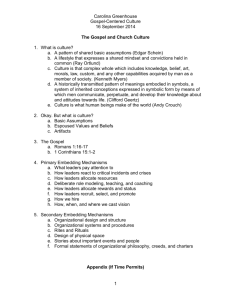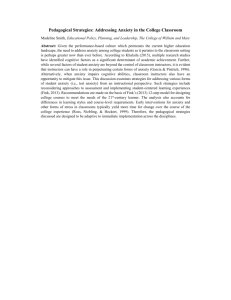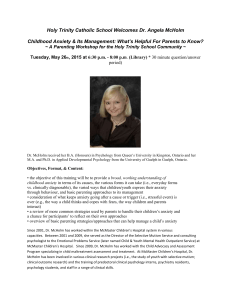Transcript video 3 - Tackling uncertainty and anxiety (doc 30.1 KB)
advertisement
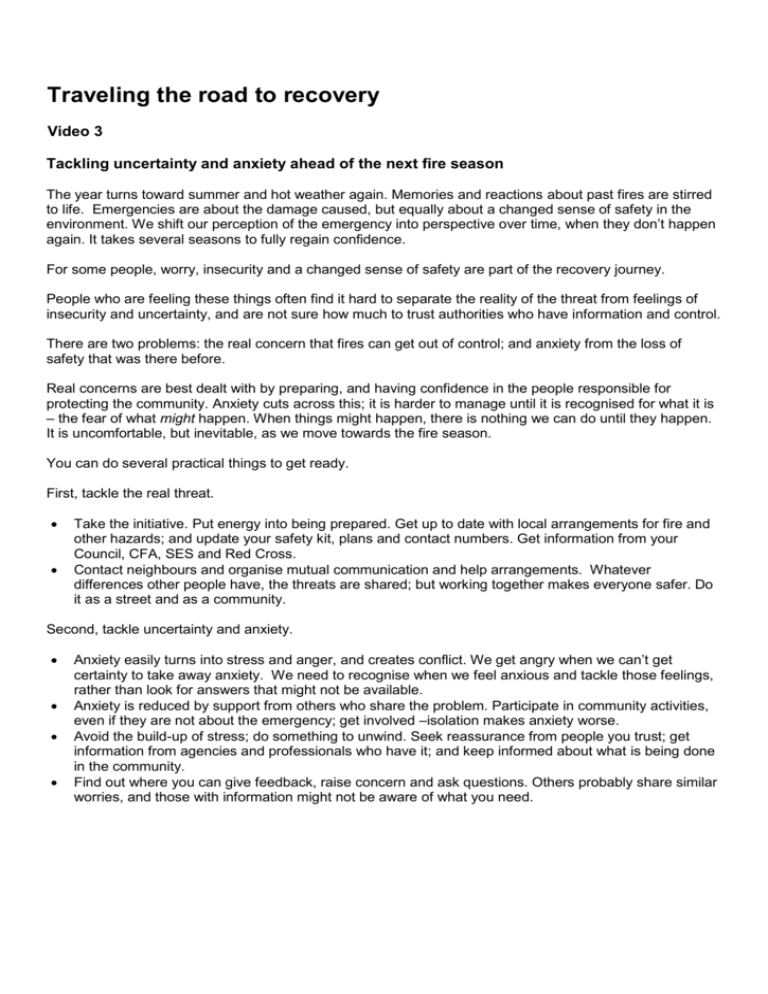
Traveling the road to recovery Video 3 Tackling uncertainty and anxiety ahead of the next fire season The year turns toward summer and hot weather again. Memories and reactions about past fires are stirred to life. Emergencies are about the damage caused, but equally about a changed sense of safety in the environment. We shift our perception of the emergency into perspective over time, when they don’t happen again. It takes several seasons to fully regain confidence. For some people, worry, insecurity and a changed sense of safety are part of the recovery journey. People who are feeling these things often find it hard to separate the reality of the threat from feelings of insecurity and uncertainty, and are not sure how much to trust authorities who have information and control. There are two problems: the real concern that fires can get out of control; and anxiety from the loss of safety that was there before. Real concerns are best dealt with by preparing, and having confidence in the people responsible for protecting the community. Anxiety cuts across this; it is harder to manage until it is recognised for what it is – the fear of what might happen. When things might happen, there is nothing we can do until they happen. It is uncomfortable, but inevitable, as we move towards the fire season. You can do several practical things to get ready. First, tackle the real threat. Take the initiative. Put energy into being prepared. Get up to date with local arrangements for fire and other hazards; and update your safety kit, plans and contact numbers. Get information from your Council, CFA, SES and Red Cross. Contact neighbours and organise mutual communication and help arrangements. Whatever differences other people have, the threats are shared; but working together makes everyone safer. Do it as a street and as a community. Second, tackle uncertainty and anxiety. Anxiety easily turns into stress and anger, and creates conflict. We get angry when we can’t get certainty to take away anxiety. We need to recognise when we feel anxious and tackle those feelings, rather than look for answers that might not be available. Anxiety is reduced by support from others who share the problem. Participate in community activities, even if they are not about the emergency; get involved –isolation makes anxiety worse. Avoid the build-up of stress; do something to unwind. Seek reassurance from people you trust; get information from agencies and professionals who have it; and keep informed about what is being done in the community. Find out where you can give feedback, raise concern and ask questions. Others probably share similar worries, and those with information might not be aware of what you need.




